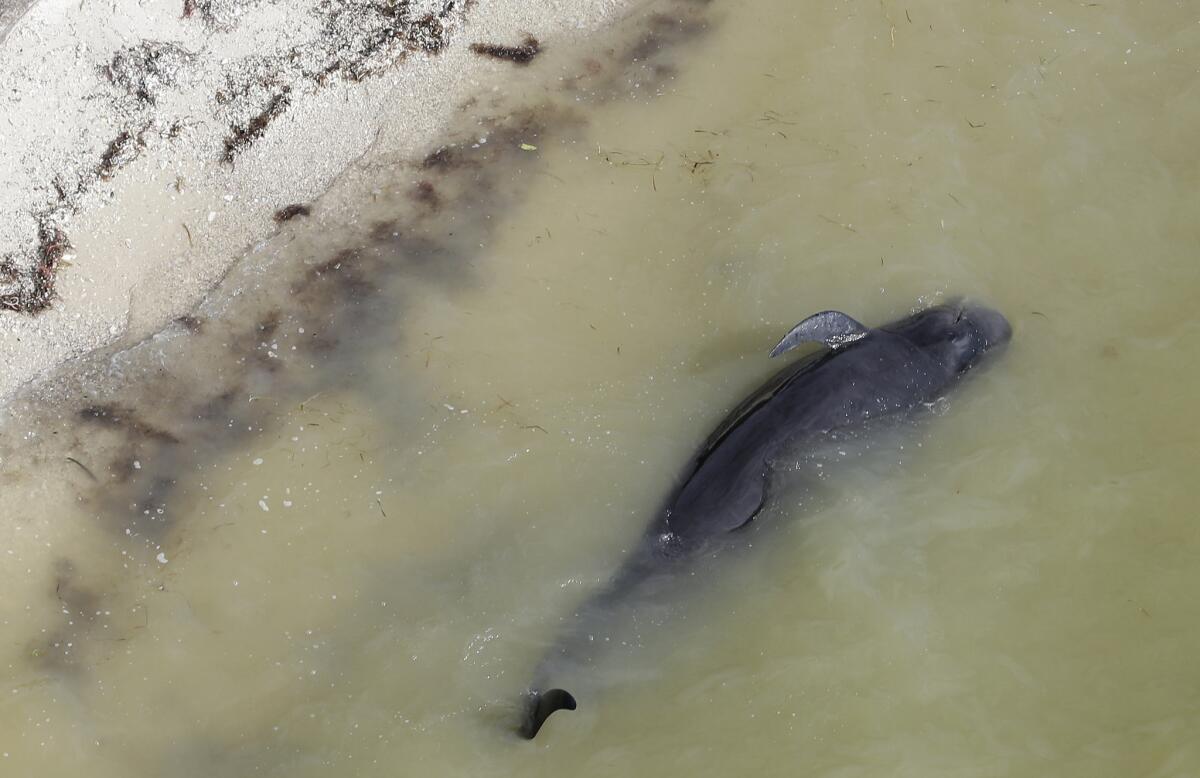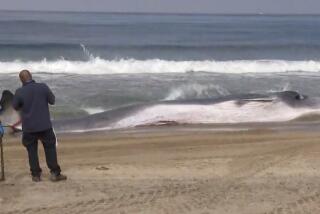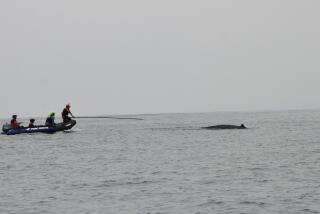Trapped Florida whales have disappeared, may be free in deep water

Wildlife experts said Friday that most of the 50 pilot whales caught in shallow waters of the Florida Everglades this week had disappeared, a sign that they have likely swam off to their deep-water home.
A rescue team on Wednesday found dozens of short-finned pilot whales swimming in very shallow water inside the western boundary of Everglades National Park. Seven beached themselves and died; four others were euthanized.
The rescue team tried to herd the other whales away, but the highly social whales did not want to break away from their pod. Also, the whales had to traverse sandbars and shallow water. Experts had said they would be lucky if only a few survived.
However, on Thursday, about 35 whales were found swimming almost 10 miles away from the shore, and by Friday morning, the large group of whales could not be found -- good news, said Blair Mase of the National Oceanic and Atmospheric Administration.
“It is encouraging that we haven’t seen them as of yet,” she said. She said the animals may have gotten into deep enough waters that they could no longer be spotted. Short-finned pilot whales typically live in water 1,000 feet deep. Their habitat was 20 miles west of where they were first spotted.
As of Friday morning, seven whales were found two miles southwest of where they were Wednesday in water between 12 and 14 feet deep. Two others were in shallow water and five miles east of where the large group was Thursday. If the whales want to head away from the shore, they need to swim west.
Mase said that the rescue team had to get on scene to figure out whether the two whales near the coast are alive or dead.
For the seven that are swimming, Mase said they aren’t moving much and seem to be staying in the same place.
“They may have a sick member in that particular group ... they’re possibly waiting for other pod members, but we don’t know,” Mase said. “We do know that due to their cohesive nature they stick together.”
She said that the rescue team will gather more information about the whales they can still see throughout the day.
Pilot whales, which can weigh more than 6,000 pounds and grow to be 24 feet long, are the most common species that mass strands in Florida. Their close-knit social structure can cause them to follow sick or lost members of their pod ashore, and then resist leaving those animals.
ALSO:
Russian diplomats charged with Medicaid fraud
New Mexico cop on leave after firing at minivan filled with kids
Minnesota archdiocese names 34 priests accused of sexual abuse
Twitter: @skarlamangla
soumya.karlamangla@latimes.com
More to Read
Sign up for Essential California
The most important California stories and recommendations in your inbox every morning.
You may occasionally receive promotional content from the Los Angeles Times.











